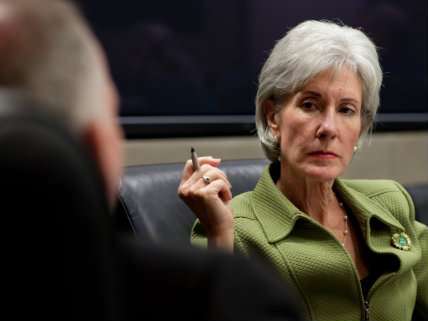Obamacare Is Coming Undone

Obamacare is coming undone. You can see it happening day by day, provision by provision, as the administration postpones or scales back key parts of the law, and other signs continue to suggest that the law as written simply won't work.
Last Tuesday, in what was apparently intended to be a pre-July 4 holiday news dump, the administration made the embarrassing announcement that it would delay by a year the health law's requirement that employers with 50 or more workers offer health coverage or pay a penalty. The administration also said it would delay the law's reporting requirements for employers who offer health coverage.
That raised a major operational question about the law's health insurance exchanges. How would those exchanges be able to determine whether someone applying for subsidies to buy individual coverage on an exchange already had access to employer coverage? The law says that people whose employers provide coverage aren't allowed to get subsidies.
Late on Friday, we get another news dump—and an answer. The 16 exchanges run by states won't have to verify an individual's health insurance status at all. Nor will the state-run exchanges have to verify an individual's income level.
Instead, they'll rely on "self-reported" information. And then subsidies will be available to anyone who simply attests that they do not get qualifying, affordable health insurance from work, and that their household income is low enough to be eligible for subsidies.
As Ben Domenech writes in this morning's Transom, what this means is that "the most significant entitlement increase since the Great Society will be operating on the honor system." And as Yuval Levin says, it may turn out to be "an open invitation to fraud." Even if outright fraud does not become a major issue, the combination of the delays may increase the cost of the law relative to what it would have been: No employer penalty, and no health status or income verification, means that more people will end up on the exchanges, receiving subsidies. And more subsidies means a more expensive law. The deficit reduction it was supposed to have achieved, already significantly reduced, is almost certainly reduced further—and perhaps gone entirely.
The delays also constitute an admission that the administration simply could not make the law's verification technology—the infrastructure that is arguably the core functionality for the exchanges—work properly before the October 2013 launch of the exchanges. Doing so, according to the rule issued by the Department of Health and Human Services last Friday, "would involve a large amount of systems development on both the state and federal side, which cannot occur in time for October 1, 2013."
The postponements were unexpected—even, apparently, to the officials running the exchanges at the state level. But trouble with the verification technology should not have come as a surprise. Obamacare's critics have warned about the potential difficulties practically since the law was passed. In my October 2010 feature on implementating the law, for example, I noted that "fast, accurate income verification presents a particularly serious difficulty," and spoke to several health policy experts who warned of difficulties ahead. Nor were critics the only ones seeing trouble. It's been clear from the reporting for over a year now that officials in charge of implementing the law were having serious problems making the exchange technology work. By the time that the official in charge of the exchange technology told insurers that he was "pretty nervous" and had resorted to working to "make sure it's not a third-world experience," it was pretty clear that the project was a mess.
The delays aren't only recent sign that Obamacare is struggling.
Just a few days before the employer mandate was postponed, Bloomberg News reported that a third of the hospitals involved in a high-level test of the law's most vaunted health care savings programs—its Accountable Care Organization (ACO) program—are threatening to cease participation. The 16 hospitals were part of the ACO "pioneer" program, which was intended to show off how some of the law's most ambitious health care payment reforms would work. Right now, however, it looks suspiciously like they aren't.
The same goes for a lot of Obamacare. Earlier this year, officials in charge of the law delayed the essential functionality of the law's small business exchanges. The law's early retirement program ran out of money and shut down early. The law's high-risk pool program signed up far fewer people than anyone predicted—and yet, thanks to unexpectedly high per-beneficiary costs—still had to cut payments to providers and cease enrollment in order to stay afloat. The availability of national health plans that were supposed to be part of the exchanges is in doubt, probably because of insurer reticence. Large swaths of rural, low-income Mississipi may end up with no insurers at all to choose from in the exchange. Officials in states that are building their own exchanges continue to say they are struggling to meet deadlines. The list goes on.
None of this means that Obamacare will collapse under its own weight. The most likely scenario at this point (though not the only one) is that the exchanges will still open on time, enrolling all who claim eligibility in subsidies. But the law's rocky implementation continues to reveal the significant flaws in both the law's legislative design and management. There's still much that's unclear about the inner workings of the exchange-creation process, but the fact that the administration is jettisoning key provisions this late in the implementation calendar suggests that it is not going well, and it is reasonable to suspect that the bad news for the law will continue. The big question, then, is which piece of the law will come undone next?


Show Comments (279)